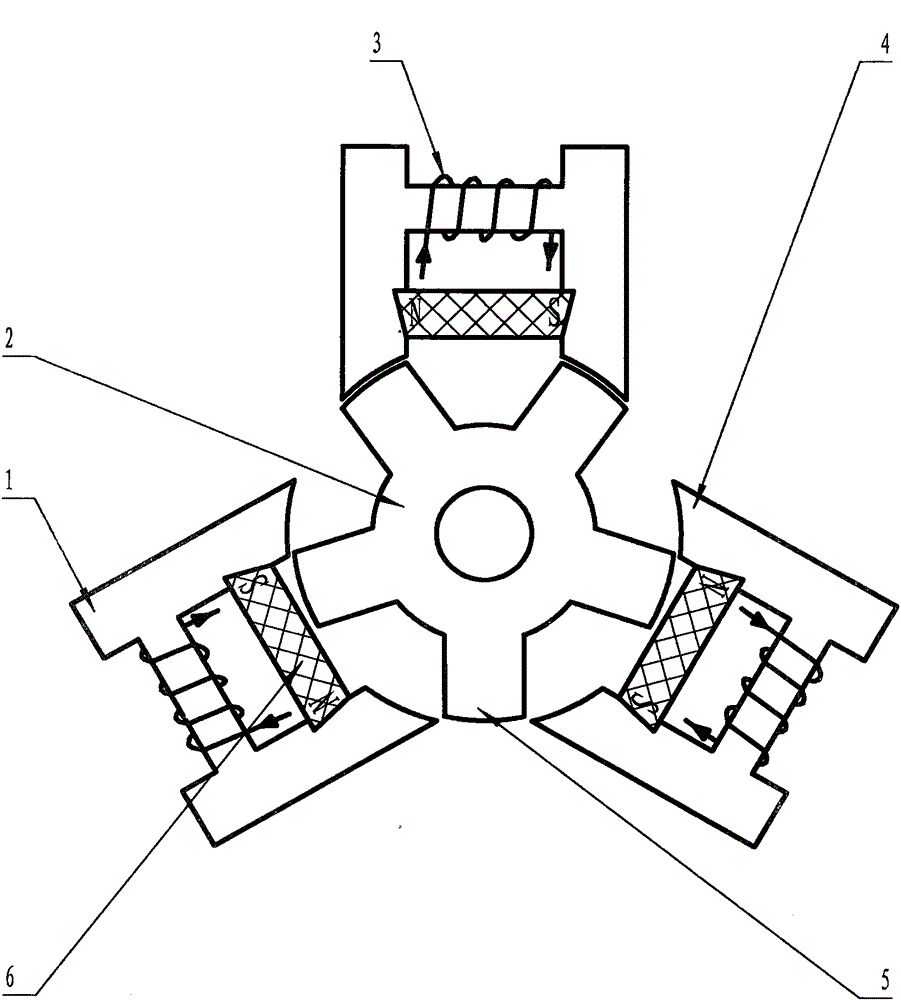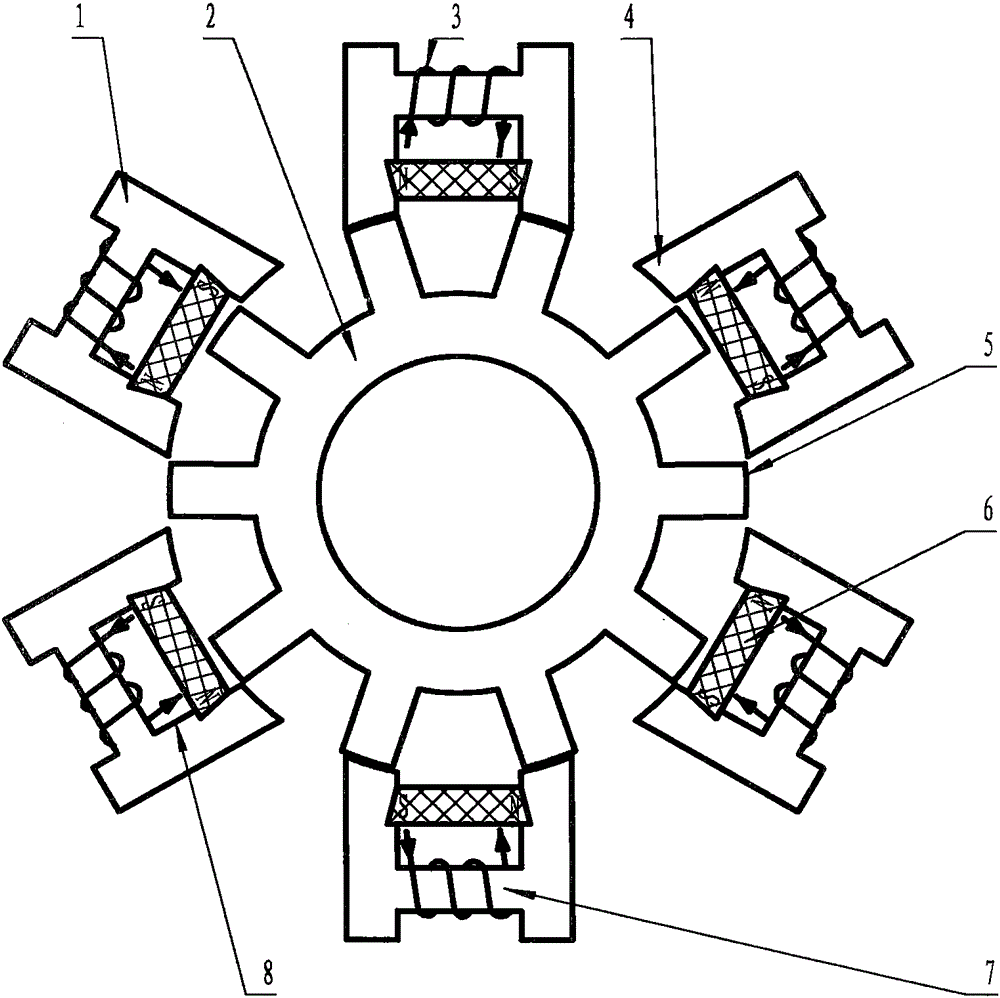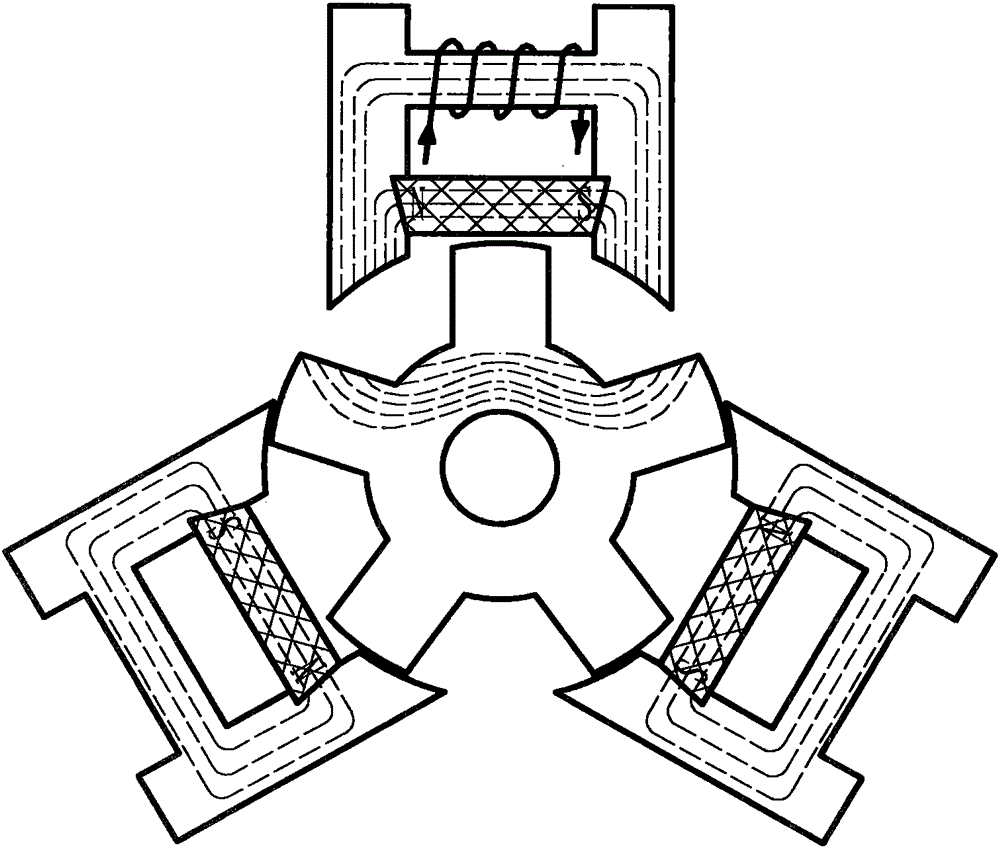Energy-saving permanent magnetism switched reluctance motor
A reluctance motor, permanent magnet switch technology, applied in synchronous machines, electrical components, electromechanical devices, etc., can solve the problems of reducing the power density and torque density of the motor, the long magnetic path of the working magnetic pole, and increasing the cost of the drive system. , to achieve the effect of extremely small leakage flux, high performance to weight ratio, and simple structure
- Summary
- Abstract
- Description
- Claims
- Application Information
AI Technical Summary
Problems solved by technology
Method used
Image
Examples
Embodiment
[0032] When the phase number of the energy-saving permanent magnet switched reluctance motor provided by the present invention is three phases, the motor can be divided into a three-phase 6 / 5 structure and a three-phase 12 / 10 structure, and the working principle is the same.
[0033] The cross-sectional structure of the energy-saving permanent magnet switched reluctance motor with three-phase 6 / 5 structure of the present invention is shown in Figure (1), including an H-shaped stator block 1, a rotor 2, an excitation winding 3 and a permanent magnet 6. Three H-shaped stator blocks 1 are evenly distributed in the circumferential direction of the salient poles of the rotor 2. There is a permanent magnet installation slot 9 at the notch of each H-shaped stator block 1, and the permanent magnet 6 is placed on the permanent magnet of the H-shaped stator block 1. In the installation slot 9, the NS pole of the permanent magnet 6 is superposed with the same polarity of the electromagnet...
PUM
 Login to View More
Login to View More Abstract
Description
Claims
Application Information
 Login to View More
Login to View More - R&D
- Intellectual Property
- Life Sciences
- Materials
- Tech Scout
- Unparalleled Data Quality
- Higher Quality Content
- 60% Fewer Hallucinations
Browse by: Latest US Patents, China's latest patents, Technical Efficacy Thesaurus, Application Domain, Technology Topic, Popular Technical Reports.
© 2025 PatSnap. All rights reserved.Legal|Privacy policy|Modern Slavery Act Transparency Statement|Sitemap|About US| Contact US: help@patsnap.com



